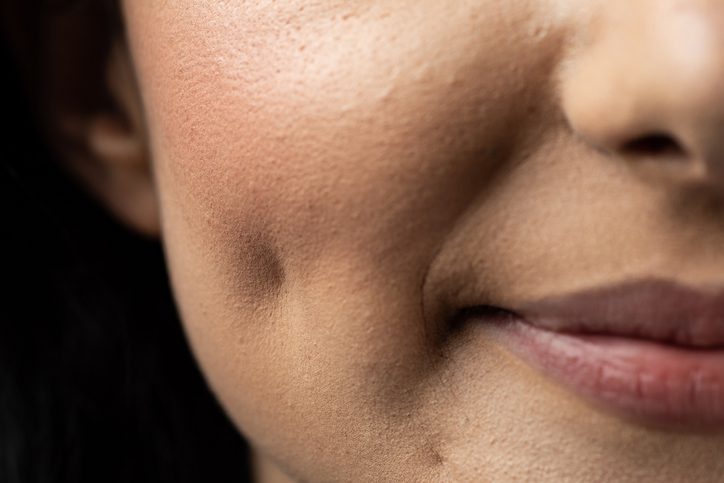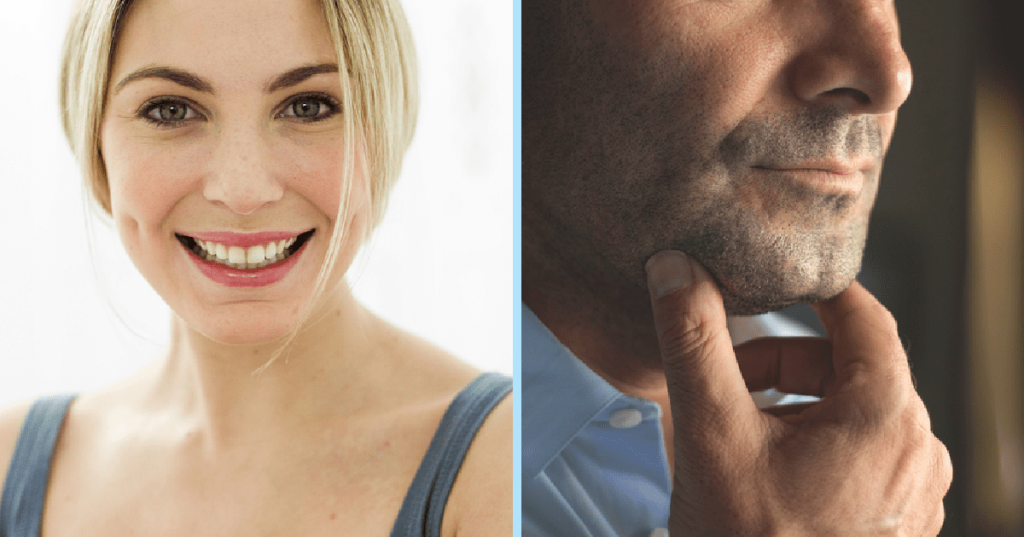Pick up and thumb through a romance novel. If there’s one physical characteristic shared by swoon-worthy heroes everywhere, it’s a dimple or two.
In real life, dimples are also pretty much universally envied and adored. One, two, or even in one’s chin, dimples just make people smile.
Did you know there are different kinds of dimples, too? And that some are much rarer than others?

Image Credit: iStock
Keep reading if you’re dying to hear more, because we’ve got all of the details below!
Let’s start with chin dimples, shall we?
Those are caused by an underlying cleft in the bone of the chin. Unlike cheek dimples, which are the result of simple genetic makeup, an aberration during the early stages of fetal development creates those chin creases.
Most professionals agree that the left and right sides of the chin failing to fuse together correctly produces this result.

Image Credit: iStock
Cheek dimples on the other hand are absolutely genetic. Experts do continue to argue about whether or not they’re a dominant or recessive trait, however.
The former means that having two parents with dimples would always result in a child having at least one dimple. The latter means a child (or grandchild) would simply have the chance to inherit one or two of those adorable little skin creases.
Like chin dimples, the predominant theory about how cheek dimples are formed is down to a defect in facial muscles. Most likely, the zygomaticus major, which is the large muscle on the side of your face, is divided instead of whole.
As far as why we have dimples, evolutionary advantage is the scientific consensus. After all, babies and small children being as adorable as possible – so we don’t throw them away when we just want a night of sleep – is good for the human race.

Image Credit: iStock
One study, published in the American Journal of Physical Anthropology, concluded:
“…the added value in making an expression noticeable, or in providing information about the intensity of the expression.”
There are also theories that people with dimples are more trustworthy – and often more sexually attractive – to others as well.
If you don’t have dimples, you can go ahead and blame your parents, which is handy.
If you do, make sure and use them for good and not evil, ok?

